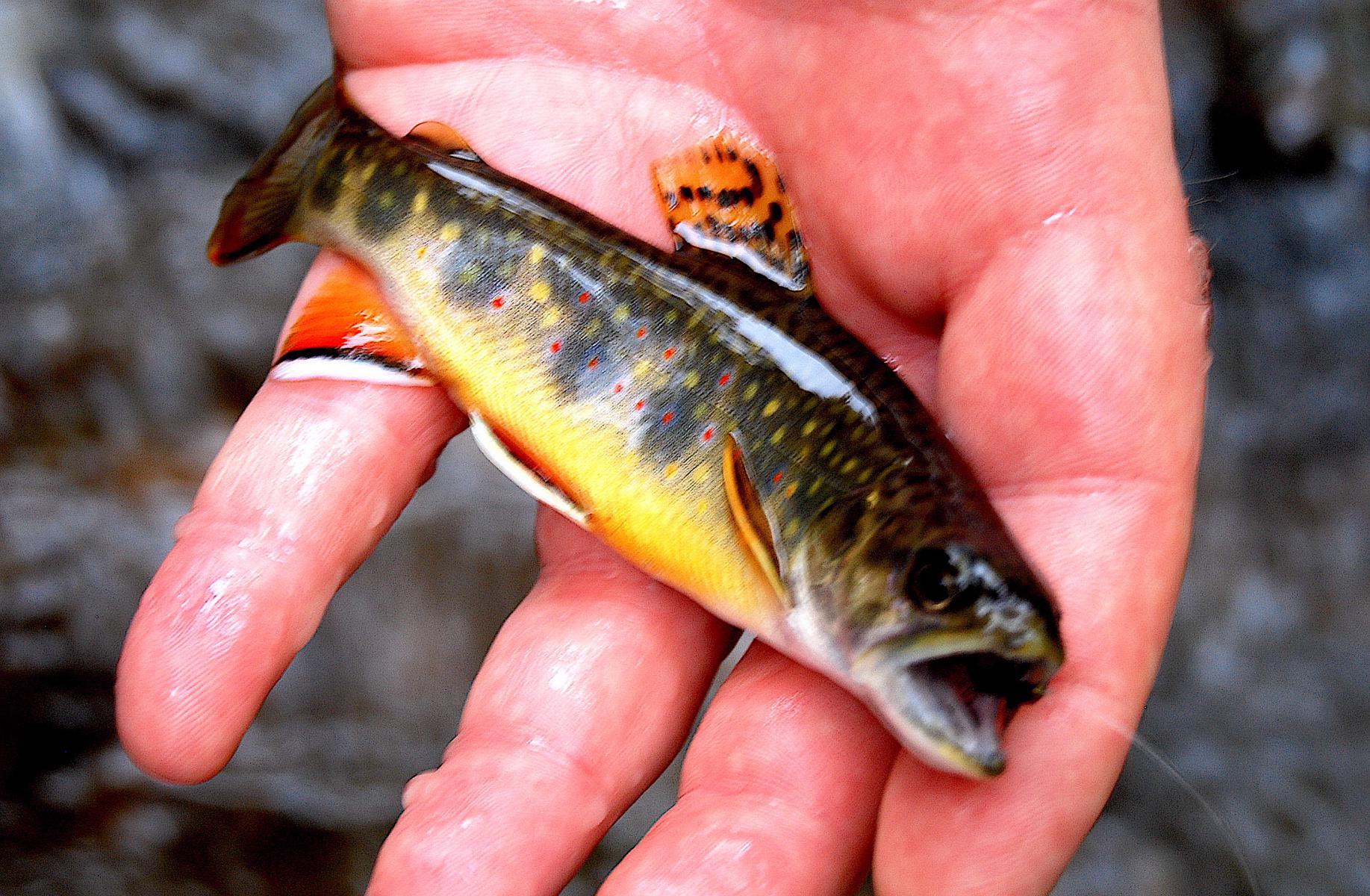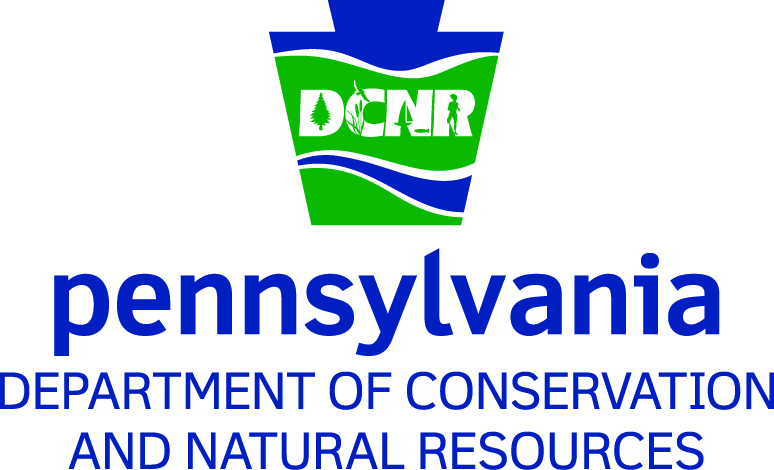Above photo: A unique Rainbow Trout, Ray Hunt
Photo to right: Native Brook Trout, Ray Hunt
Trout season is underway, and many people will be headed out to go fishing on the lakes and streams in the Pennsylvania Wilds this year. We ask that anglers help to leave their fishing spots the same as or even better than they found them.
Anglers can leave no trace by following these tips:
- Take out everything that you take in — litter can be hazardous to wildlife.
- Properly dispose of fishing line — wildlife can easily become trapped or injured in fishing line. Look for used fishing line receptacles at state and local parks.
- Don’t discard bait at your fishing site — pack out all leftover live bait, bait cups, and other trash and properly dispose it.
- Know how to identify invasive plants — avoid fishing near them and be vigilant you aren’t transporting them to a new location.
- Use lead-free tackle — if you find lead sinkers or jigs, pick them up and properly dispose of them.
- Clean off your gear — remove plants and mud from boats, waders, and other gear before leaving a site. Wash and dry them before fishing in a new spot.
Want to learn more about how you can follow the 7 Principles of Leave No Trace wherever your adventures take you? Check out the PA Wilds Leave No Trace page.
We invite you to lose (or find!) yourself in the Pennsylvania Wilds lifestyle: a slower pace where the way of life is intertwined with nature and stewardship. Whether you’re new to the region or a lifelong resident, the region’s remoteness can be both awe-inspiring and unforgettable. Plan ahead and consider the 7 principles of Leave No Trace so you have a positive experience while ensuring that others can do the same.
This article was written with language originally posted from the Pennsylvania Department of Conservation and Natural Resources (DCNR), with added information from the PA Wilds Leave No Trace initiative.
About DCNR:
Established on July 1, 1995, the Pennsylvania Department of Conservation and Natural Resources (DCNR) is charged with maintaining and protecting 121 state parks; managing 2.2 million acres of state forest land; providing information on the state’s ecological and geologic resources; and establishing community conservation partnerships with grants and technical assistance to benefit rivers, trails, greenways, local parks and recreation, regional heritage parks, open space, and natural areas. DCNR’s mission is to conserve and sustain Pennsylvania’s natural resources for present and future generations’ use and enjoyment. Learn more at DCNR.pa.gov.





